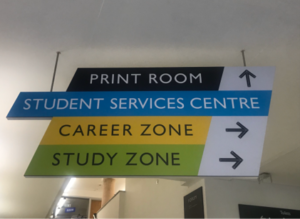By Feilin Liu, MA Translation Studies
Most students struggle with their essay writing when stepping up to university, especially international students like myself. There are different thinking modes and writing methods in different cultures. For example, critical thinking, one of the basic and core requirements, is one that I feel I am lacking in. So how to write a high-quality essay becomes a common important problem for a large number of students. Although I’m still among this group, I’ve found some useful ways to improve my essay writing skills which Id like to share with you.
- Be well prepared with your IELTS writing test

This is for international students who need to take the IELTS test for language entry requirements. Some students may regard it as just an exam and try to use shortcuts to pass it. In fact, IELTS writing will help you adjust to academic writing in university. Many methods of IELTS writing are just the same as those for academic writing, such as the introduction-main body-conclusion structure.
- Familiarise yourself with the marking criteria
Always check the marking criteria before you write an essay. This may be uploaded by your tutor at the beginning of the term and it tells you exactly what is expected in your essay and how it should be presented. You can find out the differences between different grade levels and this will help you better understand the requirements.
- Make the most use of Study Zone Digital

There are many useful resources on our university website, one of which is the Study Zone Digital, https://vle.exeter.ac.uk/course/view.php?id=1850/. There is an ocean of resources to help you with your academic skills, not only for essay writing (https://vle.exeter.ac.uk/course/view.php?id=1850§ion=3) but also about reading strategies, note-taking skills as well as presentation skills, all of which are very useful for your studies. Enjoy exploring it.
- Book a 1-1 appointment
You can either submit a form online (http://www.exeter.ac.uk/studyzone/studyskills/1-1appointments/#tab3) or drop in to the Study Zone to request a 1-1 appointment with a Study Skill Adviser to give you some tailored advice. They offer advice on various aspects of study, and you can even have them proofread your finished work (only about the structure, grammar, format things). And there is no limit to the amount of appointments you can request, which is good news for me.

- Writing Cafés as drop-in sessions
You need to book a 1-1 appointment in advance, but what if you have an emergency problem? Don’t worry, Writing Cafes will help. They run every Tuesday and Thursday between 13:00-16:00 in the Study Zone in Forum, where you can take advantage of a Study Skills Adviser to ask specific questions about your writing. You can either go there alone or with your friends or study groups if necessary.
- Use feedback from your commented essays
This is quite helpful for your writing skills, as the old saying goes, failure is the mother of success. You can use the feedback to create a checklist of your frequent mistakes. You can also ask your tutor responsible for the particular module or the Study Skills Adviser mentioned above for more detailed feedback.
- Recommended reading provided
I’ve no idea of t he learning mode of undergraduates, however, as postgraduates, we have limited hours of class time with our teachers, which means we need to study on our own most of the time. Nevertheless, our tutors always recommend and upload a lot of reading materials for us, most of which are great essay models for us to learn from, journals and articles published in recent years in particular. One advantage of these is that they are good examples specific to your subject area. What a treasure!
he learning mode of undergraduates, however, as postgraduates, we have limited hours of class time with our teachers, which means we need to study on our own most of the time. Nevertheless, our tutors always recommend and upload a lot of reading materials for us, most of which are great essay models for us to learn from, journals and articles published in recent years in particular. One advantage of these is that they are good examples specific to your subject area. What a treasure!
Here are all the tips I have gathered so far while studying at Exeter. I hope they can also be useful and helpful to you. Good luck with your essay writing!
